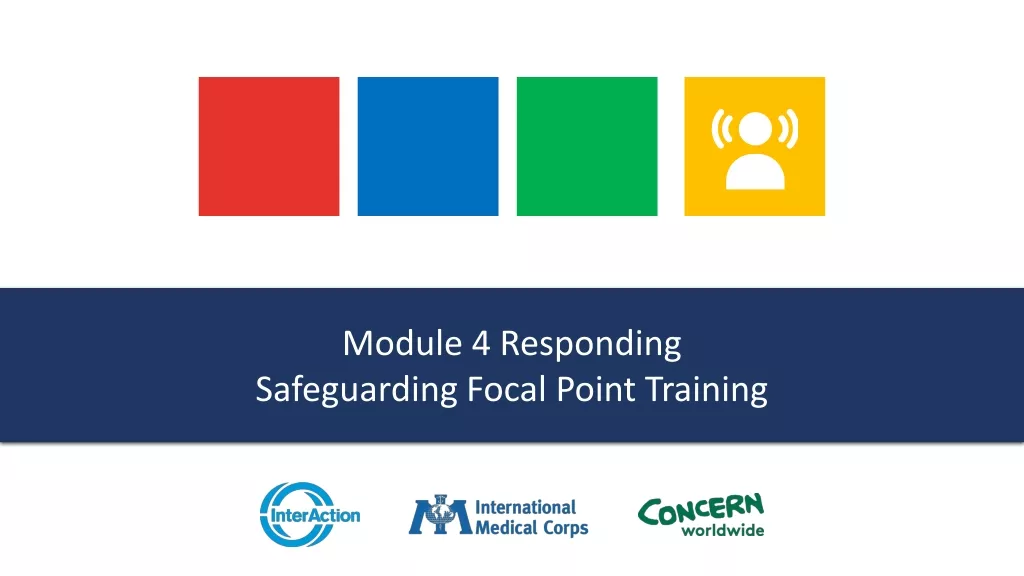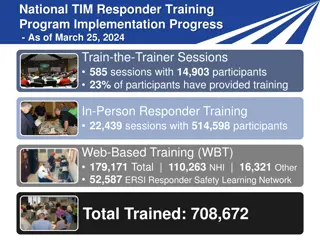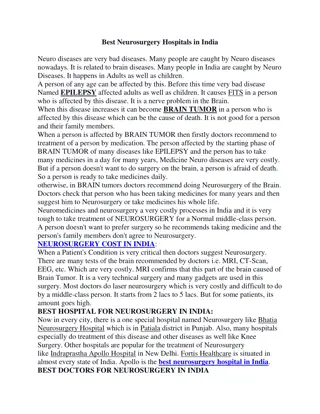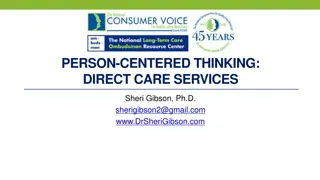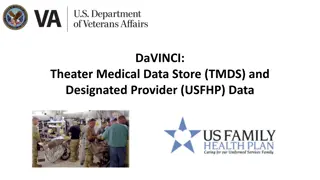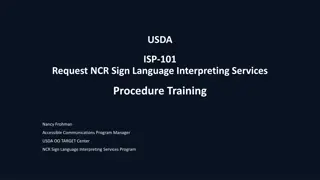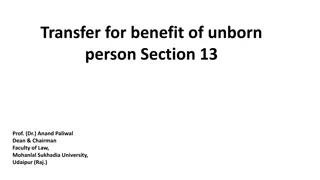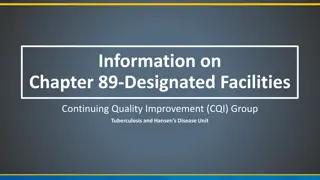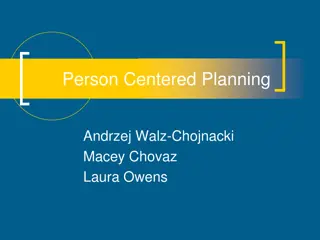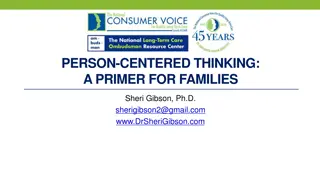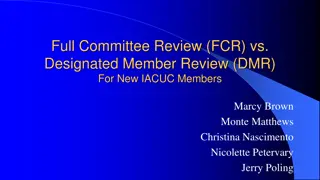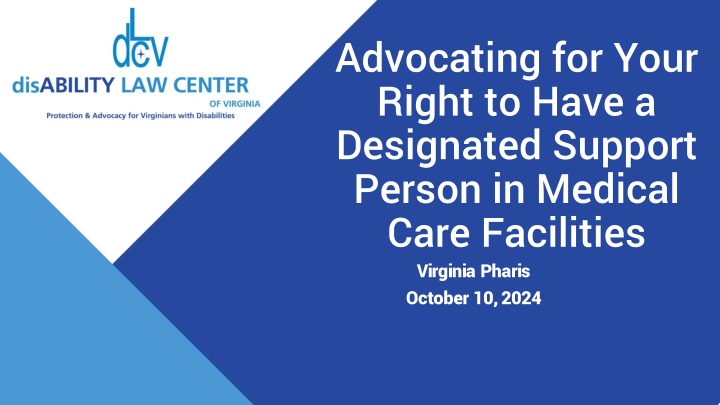
Designated Support Person Rights in Medical Care Facilities
Learn about the importance of having a Designated Support Person for individuals with disabilities in medical care facilities in Virginia. Explore the rights, responsibilities, and resources available under the Code of Virginia 32.1-137.08.
Download Presentation

Please find below an Image/Link to download the presentation.
The content on the website is provided AS IS for your information and personal use only. It may not be sold, licensed, or shared on other websites without obtaining consent from the author. If you encounter any issues during the download, it is possible that the publisher has removed the file from their server.
You are allowed to download the files provided on this website for personal or commercial use, subject to the condition that they are used lawfully. All files are the property of their respective owners.
The content on the website is provided AS IS for your information and personal use only. It may not be sold, licensed, or shared on other websites without obtaining consent from the author.
E N D
Presentation Transcript
Advocating for Your Right to Have a Designated Support Person in Medical Care Facilities Virginia Pharis October 10, 2024
dLCV mission dLCV s mission is to advance independence, choice, and self- determination; protect legal, human, and civil rights; and eliminate abuse, neglect, and discrimination of people with disabilities through zealous and uncompromising legal advocacy and representation.
Quick Disclaimer about dLCV This presentation is intended to provide general information regarding federal and state law. The provision of this presentation does not constitute legal advice and does not create an attorney-client relationship with the disAbility Law Center of Virginia.
Road Map Introduction How to find provider s policies (and what to know) Tools and Resources Case Studies Questions
Introduction Today, you will learn about a new (2021) Virginia law that impacts people with disabilities and the people who care for them. Code of Virginia 32.1-137.08. Medical care facilities; persons with disabilities; designated support persons. It allows any person with disabilities to have a Designated Support Person with them when they are in any medical care facility.
The Basics A Designated Support Person (DSP) is a responsible adult who understands the person s needs and can provide assistance when required. The Designated Support Person is NOT a visitor. What can a Designated Support Person DO? Assist with daily living activities while the person with a disability is in the medical setting. These might include: Eating and drinking Communication Grooming and dressing
The Basics (continued) Healthcare providers are required to explain the right to Designated Support Persons on their website Website listings are usually easier to understand than reading the law itself A person with a disability may need documentation that they have a disability A person with a disability can use My Health Passport or advance directives to make their wishes known
Policies on Provider Websites As a General Rule: The policy will usually be under the visitor s hours or patient s rights sections Words to look for are Designated Support Person, Person with special needs, Person with Disability, and Designated Caregivers (All of these words go with the DSP policy). If the policy has the words emotional support person that is not the same as a Designated Support Person.
Person-Centered Health Profile Workbook Workbook for Person Centered Health Profile -Center for Disability Leadership -Virginia Commonwealth University (vcu.edu) A booklet of information that a person with a disability can fill out before they get sick Gives guidelines about what the person needs and prefers in medical care settings This can include your Designated Support Person!
Advance Directives and Supported Decision Making An Advance Directive helps you advocate for your rights to health care when you can t In this document, you can write out your health care needs and who can advocate for you when you cannot consent This could include your Healthcare Agent and Designated Support Person Your Healthcare Agent and Designated Support Person must follow your wishes A copy of the Virginia Advance Health Care Directive is on the dLCV website
Healthcare Agent This term is used in advance directives Like a Designated Support Person, a Healthcare Agent is not a visitor Your Healthcare agent can be anyone you know You can also limit what the Healthcare Agent can do or what they can decide The Healthcare Agent should work with the Designated Support Person If they are different people
Checklist: Setting up your DSP Plan These 6 steps can be done in any order. No step is mandatory. See Handout 1. Consider DSP Options 2. Establish the DSP s Role 3. Complete Person-Centered Health Profile Workbook 4. Research Hospitals 5. Have Disability Documentation 6. Create a Shareable File
Case Study 1 Jordan was hospitalized following surgery for a bowel obstruction. Due to COVID-19 precautions, this hospital told his guardian that Jordan cannot have visitors, so she has not been able to see him. Jordan has limited verbal capabilities and is not always able to advocate for himself or call his guardian. Since she cannot see or speak to him, Jordan s guardian is worried about the care he is receiving at the hospital and doesn t know what to do.
Case Study 2 Linda was an older patient who was hospitalized with kidney failure and sometimes disoriented due to her chronic conditions. Linda s daughter, Ginger, frequently helped her with orientation and communication. The hospital tried to tell Ginger that, due to their visitation policy, Ginger had to leave when Linda had another visitor, because they only allowed one visitor at a time, so Linda would have to choose between seeing her husband and getting help from Ginger.
Questions for the case studies What was similar about the case studies? What could have gone differently in these case studies? What would you do in these situations?
CONNECT WITH US ADDRESS 1512 Willow Lawn Drive Suite 100 Richmond, VA 23230 PHONE 1-800-552-3962 (toll-free) | 804-225-2042 Monday, Wednesday, and Friday 8:30 am-4:30 pm WEBSITE dLCV.org If you like the presentation, you can fill out the summit feedback survey. Twitter icon Instagram icon Facebook icon Spotify icon dlcv.org/podcast @disAbilityLawVA @disAbilityLawVA facebook.com/ disAbilityLawVA

